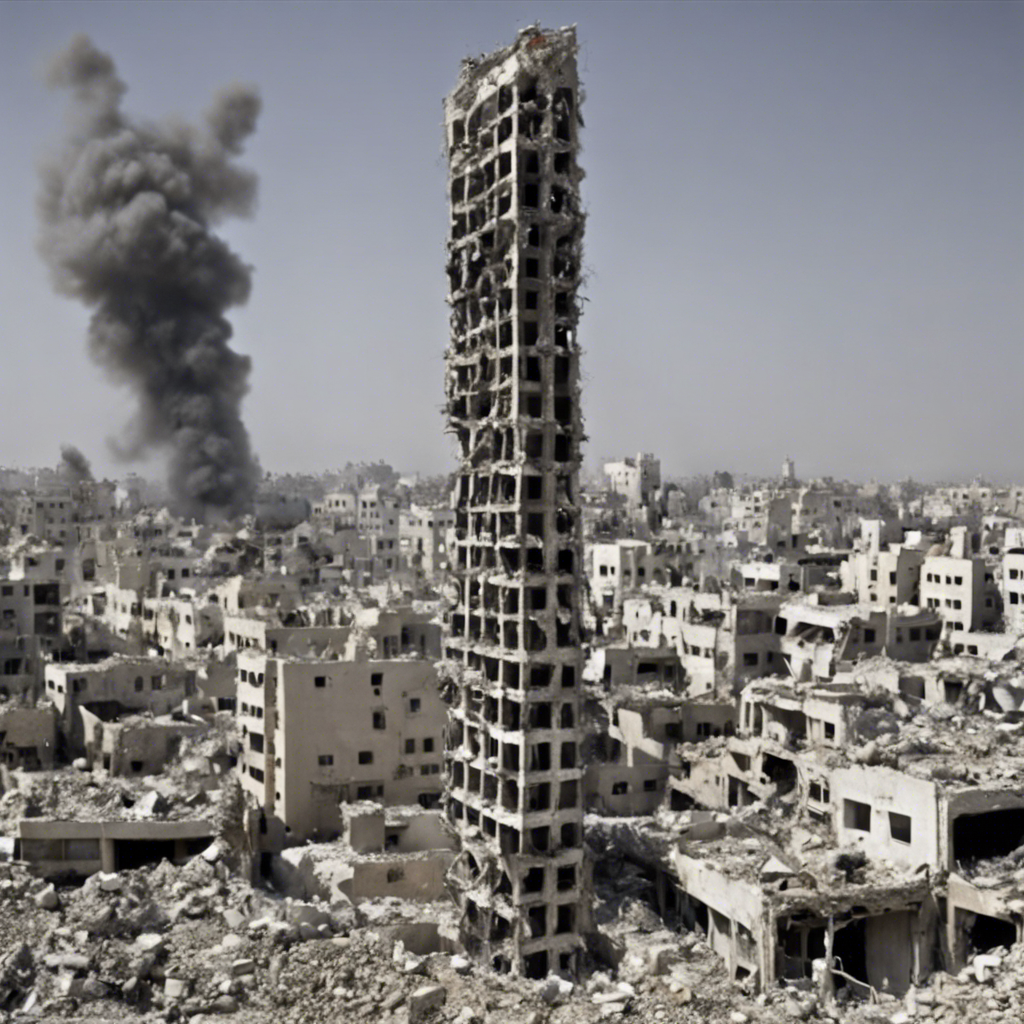United States Vetoes UN Resolution for Gaza Cease-Fire, Deepening Fractures with Allies

The United States’ veto of a United Nations resolution calling for an immediate humanitarian cease-fire in Gaza has sparked criticism and warnings of further civilian casualties. The move reflects a growing divide between Washington and some of its closest allies over Israel’s ongoing bombardment of the region.
In a highly controversial decision, the United States has vetoed a United Nations resolution demanding a cease-fire in Gaza. The resolution, which was supported by almost all other Security Council members and numerous nations worldwide, sought to put an end to the devastating conflict that has been raging for months. The US veto has deepened fractures between Washington and its closest allies, with France and Japan among those supporting the call for a cease-fire. This move has raised concerns about the protection of civilians and the future of international peace and security.
US Isolated in Vetoing Cease-Fire Resolution
The US veto came as a shock to many, as the resolution had overwhelming support from the international community. The vote in the 15-member Security Council was 13-1, with the United Kingdom abstaining. The US’ decision to oppose the resolution reflects a growing divide between Washington and its allies over Israel’s prolonged bombardment of Gaza. The veto has drawn criticism and warnings of further civilian deaths and destruction as the conflict enters its third month.
Arab Diplomats Shift Responsibility to the US
In an effort to pressure the Biden administration to change its stance, foreign ministers from Egypt, Jordan, the Palestinian Authority, Qatar, Saudi Arabia, and Turkey were in Washington on the day of the UN vote. Their meeting with Secretary of State Antony Blinken only took place after the veto. This diplomatic mission aimed to shift responsibility onto the United States for protecting Israel from mounting demands to halt the airstrikes that have claimed the lives of thousands of Palestinian civilians. Arab diplomats expressed disappointment and questioned the message being sent to Palestinians and civilians worldwide.
US Criticizes Resolution as Imbalanced
The US deputy ambassador, Robert Wood, defended the veto by describing the resolution as “imbalanced.” He criticized the Security Council for failing to condemn Hamas’ attack on Israel on October 7, which resulted in the deaths of approximately 1,200 people, mostly civilians. Wood argued that halting military action would allow Hamas to continue ruling Gaza and pave the way for future conflicts. The US emphasized its support for a durable peace but opposed an immediate cease-fire.
Devastation in Gaza and Global Support for Cease-Fire
Israel’s military campaign in Gaza has had catastrophic consequences. According to the Palestinian territory’s Health Ministry, over 17,400 people have been killed, with 70% of the victims being women and children. More than 46,000 people have been wounded, and many others remain trapped under rubble. The resolution, sponsored by the United Arab Emirates, garnered nearly 100 co-sponsors in less than 24 hours, demonstrating global support for efforts to end the war and save Palestinian lives.
Disappointment and Isolation of the Security Council
Following the US veto, the UAE diplomat expressed deep disappointment and warned that the Security Council is growing isolated and “appears untethered” from its mandate to ensure international peace and security. France’s ambassador, a veto-wielding permanent council member, lamented the lack of unity and called for an immediate and lasting humanitarian truce. Russia’s deputy U.N. ambassador accused the US of issuing a “death sentence” to thousands of civilians in Palestine and Israel.
Conclusion:
The United States’ veto of the UN resolution for a cease-fire in Gaza has sparked outrage and deepened fractures with its allies. The decision has raised concerns about the protection of civilians and the future of international peace and security. As the conflict continues to claim lives and devastate Gaza, the international community is left grappling with the question of how to achieve a lasting peace in the region. The repercussions of this veto will undoubtedly be felt for years to come.

